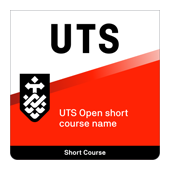This course will enable you to gain the applied knowledge and skills needed to evaluate programs and projects. Led by an academic practitioner with extensive experience in designing and conducting evaluations, the live online sessions will allow for real-time interaction between the presenter and participants, encouraging deep discussion and analysis of the course content.
The following topics will be covered during the course:
- The big picture and how to put it together
- Clarifying your program outcomes
- From outcomes to indicators
- Developing a logic model
- Developing key evaluation question.
Delivery Style
This course will be delivered online via Zoom. Course materials, presentation notes and readings will be made available to participants prior to the first session.
In-house training solutions
This course can also be customised and/or delivered in-house. We also offer in-depth courses that cover specific aspects of evaluation and evidence-based decision-making.

















